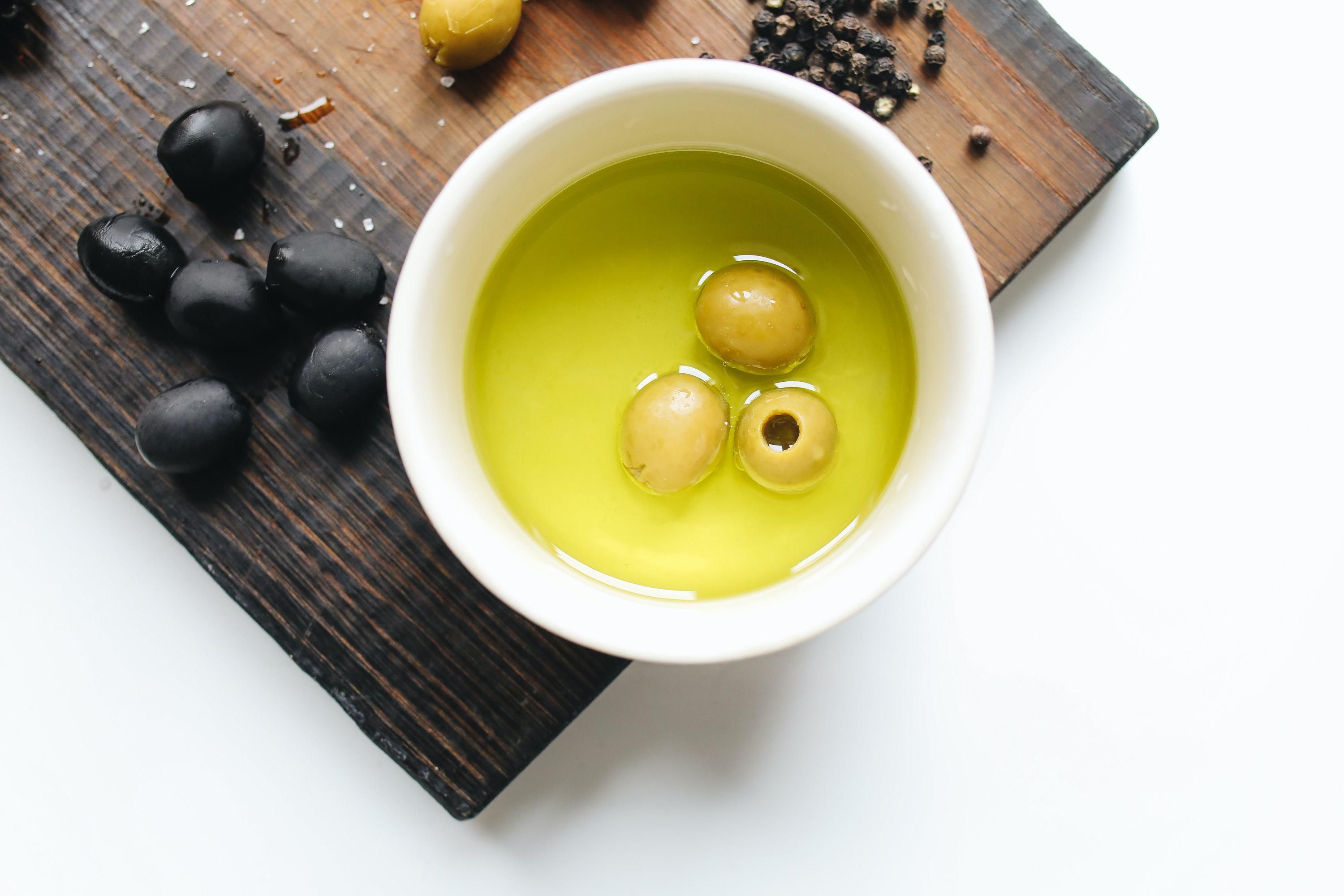There is usually a lot of confusion when it comes to discerning the various types of olive oils. This is because olive oils have methods of categorization. They are usually classified based on procedures and features. In this post, we try to cover most types of olive oils.
Every olive oil type has its own flavour and physicochemical profile. With them, you can determine the variety of olive fruit used, its origin and how it has been processed. For instance, the flavour profile of olive oil changes with its time of harvesting. Olive oils of different harvest times have different properties.
Types of Olive Oils
Olive oil is usually classified by the extraction method and oil quality (with regards to taste and free fatty acidity). The following are the various types of olive oil we usually produce.
1. Mechanically extracted Olive oils
Olive oils that are produced through mechanical means are the most natural type of olive oil. They are simply obtained by pressing without the use of any chemical additions during extraction. Virgin olive oils are produced in this manner, in mills. Virgin olive oils are offered in three variants and are classified based on quality.
Extra Virgin Olive Oil
This is the best commercial grade of olive oil. This type of olive oil comes with a sizable amount of polyphenols that are known to provide good health e.g., decreasing the risk of cardiovascular diseases and cancer. With a free fatty acidity level that is below 0.8%, it comes with a good smell and taste and can be sold directly to consumers. It is best known for its superior taste and flavour - fruity aromas, a slightly bitter and pungent taste. Extra virgin olive oil is often used for salads as a tasty dressing but has a very broad application in all manners of cooking.
Virgin Olive Oil
This olive oil is a grade lower than the extra virgin variant. It comes with free fatty acidity between 0.8% and 2% and has a slightly pleasant flavour and scent. It is also sold directly to consumers. It is useful for sauteing and frying purposes.
Lampante Virgin Olive Oil
The lowest grade of virgin olive oil: with free fatty acid content exceeding 3.3% by weight. It usually comes from badly conserved olives. And it has an unpleasant rancid smell and taste. Thus, it is forbidden to be sold commercially to consumers and requires further processing at refineries to remove the defects before use. Lampante virgin olive oil is refined by treating it with heat, filtration, and/or chemical processes. The refining process, while improving the free fatty acid levels, destroys the majority of the polyphenols where the taste and health benefits of olive oil come from.
Refined Olive Oil
As the refined product of lampante virgin olive oil, it is very much without taste or colour and is usually blended with virgin olive oil to provide some flavour and aroma before being sold to consumers. The blended refined olive oil is sold on shelves as olive oil or pure olive oil.
Olive Oil/ Pure Olive Oil
Having an acidity of not more than 1%, olive oil/ pure olive oil is a blend of refined olive oil and virgin olive oils that has some flavour and is fit for human consumption but without the complete health and taste benefits of unrefined virgin olive oil.
2. Chemically extracted Olive oils
Olive oils can also be extracted by chemical processes. Once the mechanically extracted olive oils have been drawn out from the olives, the solid remnants left behind by the process known as olive pomace still has residual olive oil. This remaining olive oil can only be extracted through the use of chemical solvents. After chemical extraction, a product known as raw olive pomace olive oil is obtained. Raw olive pomace oil needs refining and is not available to consumers.
Refined Olive Pomace Oil
Refined olive pomace oil is tasteless, odourless, colourless and safe for consumption. Although it is inferior to extra virgin olive oil and other olive oils, it is versatile; can be used in cooking as well as in treating hair problems and dry skin etc.
Having introduced the different varieties of olive oil, you are now able to make better-informed decisions when shopping for your groceries.





 people sitting on chair in front of computer
people sitting on chair in front of computer



 all stars lol GIF by Lifetime
all stars lol GIF by Lifetime two women talking while looking at laptop computerPhoto by
two women talking while looking at laptop computerPhoto by  shallow focus photography of two boys doing wacky facesPhoto by
shallow focus photography of two boys doing wacky facesPhoto by  happy birthday balloons with happy birthday textPhoto by
happy birthday balloons with happy birthday textPhoto by  itty-bitty living space." | The Genie shows Aladdin how… | Flickr
itty-bitty living space." | The Genie shows Aladdin how… | Flickr shallow focus photography of dog and catPhoto by
shallow focus photography of dog and catPhoto by  yellow Volkswagen van on roadPhoto by
yellow Volkswagen van on roadPhoto by  orange i have a crush on you neon light signagePhoto by
orange i have a crush on you neon light signagePhoto by  5 Tattoos Artist That Will Make You Want A Tattoo
5 Tattoos Artist That Will Make You Want A Tattoo woman biting pencil while sitting on chair in front of computer during daytimePhoto by
woman biting pencil while sitting on chair in front of computer during daytimePhoto by  a scrabbled wooden block spelling the word prizePhoto by
a scrabbled wooden block spelling the word prizePhoto by 
 StableDiffusion
StableDiffusion
 StableDiffusion
StableDiffusion
 StableDiffusion
StableDiffusion

 women sitting on rock near body of waterPhoto by
women sitting on rock near body of waterPhoto by 
 Photo by
Photo by  Photo by
Photo by  Photo by
Photo by  Photo by
Photo by  Photo by
Photo by  Photo by
Photo by  Photo by
Photo by  Photo by
Photo by  Photo by
Photo by  Photo by
Photo by 








